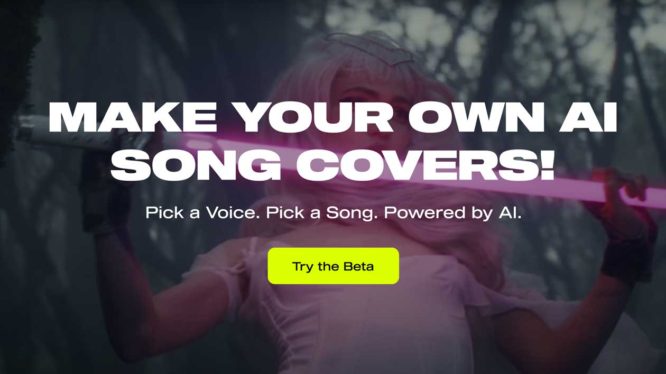MAYK’s artificial intelligence-powered voice recreation tool officially launched to all users today (May 10).
Covers.ai lets users upload their own original songs and then try on other AI-voices on top of it, including the voices of Billboard Hot 100-charting talent. According to a company press release, Covers.ai’s tool topped over 100,000 sign-ups prior to its launch.
Its founder and CEO, Stefan Heinrich — an entrepreneur who previously worked in high-ranking positions for Cameo, TikTok, Musical.ly and YouTube — explains that, for now, most of the models available for users to work with are “community models.”
“This is open source,” he explains. “There are users that make these models with various celebrity voices out in the wild, and those can be uploaded and marked at ‘community models’ on our site. At the same time, we are working with artist teams to license the voices of specific talent so we can find a way to compensate them for their official use.”
Eventually, Heinrich says he also hopes to find a way to license song catalogs from rights holders so that users can mix and match tracks with various artists’ voices they find on the site. Through these licensing agreements, he hopes to find a way to create a new revenue stream for talent, but to date, these licenses have not yet been finalized.
MAYK is backed by notable music investors including Zach Katz (president/COO of FaZe Clan, former president of BMG US), Matt Pincus (co-founder and CEO of MUSIC), Jon Vlassopulos (CEO of Napster, former global head of music at Roblox), Mohnish Sani (principle, content acquisition, Amazon Music) and more.
The launch arrives as conversations around AI and vocal deepfakes are at a fever pitch. Just last month, an unknown songwriter called Ghostwriter went viral for creating a song called “Heart on My Sleeve” using supposed AI-renderings of Drake and The Weeknd’s voices without their knowledge. Soon after, Grimes responded to the news by launching her own AI voice model to let users freely use her voice to create music.
In just a few minutes of searching, it’s apparent that TikTok is already flooded with songs with AI-vocals, whether they are original songs employing the voices of famous talent, like “Heart on My Sleeve,” or mashing up one well-known song with the voice of a different artist.
This AI vocal technology raises legal questions, however.
Mimicking vocals may be a violation an artist’s so-called right of publicity – the legal right to control how your individual identity is commercially exploited by others. Past landmark cases — like Tom Waits v. Frito Lay and Bette Midler v. Ford Motor Company — have established that soundalikes of famous voices cannot be employed without their consent to sell products, but the precedent is less clear when it comes to creative expressions like songs, which are much more likely to be deemed a protected form of free speech.
Heinrich hopes that Covers.ai can help “democratize creativity” and make it far more “playful” in an effort to get music fans from the lean-back forms of music discovery, like listening to radio or a pre-programmed editorial playlist, to a more engaged, interactive experience. “I think what music is really changing right now,” he says, noting that Covers.ai’s earliest adopters are mostly Gen Z and Gen Alpha. “The product we’re building here is really made for the next generation, the one coming up.”
https://www.billboard.com/pro/covers-ai-voice-recreation-service-tool-launch-mayk/

